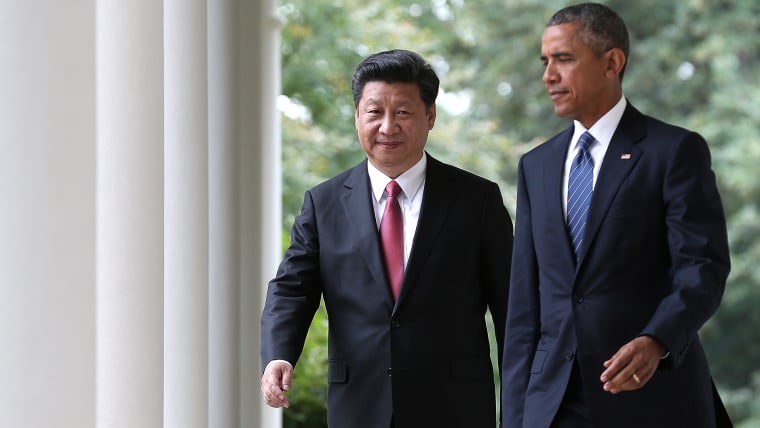A few months ago, New Jersey Gov. Chris Christie (R) tried his hand at foreign policy, mocking President Obama and pushing for additional U.S. steps in the South China Sea, where China is building islands and claiming territory as its own.
China denounced what it called a “dangerous and provocative” act Tuesday after an American warship sailed within 12 nautical miles of a Chinese-built artificial island at a center of regional dispute over maritime territory and sea routes. The incident reflects rising tensions between the United States and China over Beijing’s aggressive program of land reclamation and construction on rocks and reefs in the Spratly archipelago in the South China Sea, whose shores include Vietnam, Taiwan and the Philippines.
The Post's report added that the U.S. naval action, the latest step after months of talk and rising tensions, was "intended to uphold the principle of freedom of navigation in international waters." The move also helps make clear that the United States "does not accept China’s claim to territorial waters around the man-made islands," while "reassuring nervous American allies that Washington would not allow Beijing to throw its weight around in the region unchallenged."
In other words, in a development that's gone largely unnoticed in the political world, President Obama is doing what Republicans hoped he'd do with regard to a global power and rival.
Note, as recently as September, Chinese officials warned they would “never allow any country” to treat these areas as international waters, but Obama did exactly that.
In response, as the Post reported, China’s vice foreign minister summoned U.S. Ambassador Max Baucus "to deliver a formal protest." Chinese Foreign Minister Wang Yi urged the United States “not to act blindly or make trouble out of nothing.”
As Mother Jones' Kevin Drum noted yesterday, there's quite a distance between "never allow" and registering a formal complaint to an ambassador.
That said, a state-run Chinese newspaper reported today that the country is "not afraid to fight a war" with the U.S., adding that the naval action represented "harassment." An NBC News report added that "anger over the U.S.'s move in the South China Sea dominated the headlines of major newspapers in China Wednesday."
Interesting that this is happening during a presidential campaign in which Republican presidential candidates trip over themselves to condemn the U.S. president as "weak," and the political world is paying very little attention to it.
